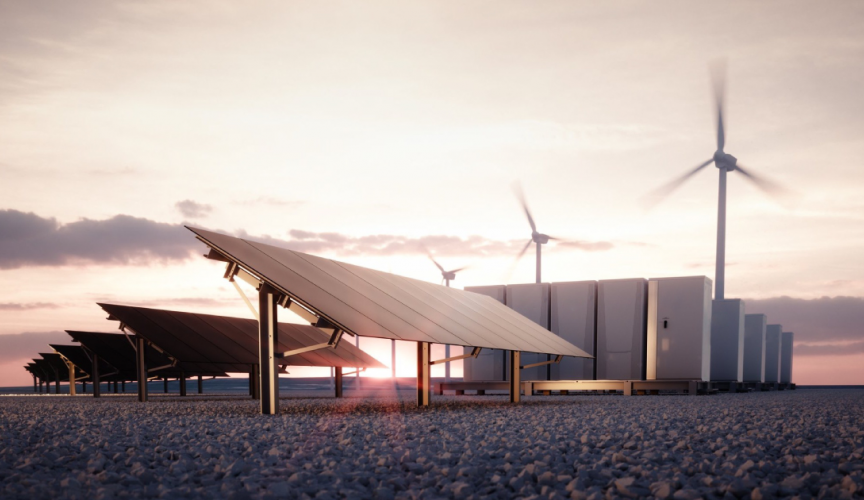
di Cecile De Mauleon, Institutional Relations & Communications Manager of Magaldi Green Energy
Social responsibility and awareness of sustainability will be essential to achieve the ecological and energy transition especially in light of current geopolitical and structural conflicts. Government, companies, banks, civil society are called to assume a true collective commitment with a community vision for the good of humanity and our planet.
In 2020, a period of great challenges for humanity began, characterized mainly by the Covid-19 pandemic that hit all the countries of the world hard, resulting today in 472,816,657 infections and 6,099,380 deaths globally (WHO, 2022), without distinguishing between industrialized or developing countries or between poor and rich people.
The high number of cases translated into unsustainable pressure on health systems and a very high level of exhaustion for health operators. This notably sensitized the world about the importance of investing in infrastructure, modernization, training, and mostly enabling working conditions for the health sector.
The pandemic not only highlighted the significant structural and inequality problems that existed in the health systems of the different countries, but also brought us face to face with a reality that until then we had not been able to recognize: the world does not face a single crisis, rather, it faces several interrelated crises at the same time. Covid-19 demonstrated with a high cost in human lives and global economic effects that our planet is simultaneously experiencing the climate, economic, social, health and security crisis in a single crisis.
The disruptive closure of industrial, economic and productive activities to prevent the spread of contagion put all the governments of the world in front of a delicate dilemma: try to sustain economic growth, or protect the life and health of people. In Italy - the first country to be abruptly hit by Covid, after China - the rules imposed in 2020 to contain the spread of Covid-19 paralyzed the industry. The population went into a general lockdown. The shops were closed. Companies in all sectors had to completely stop their activities, except for those considered essential for national production. Italy, the 7th world economy, made this difficult decision to protect the lives of its people, assuming the cost of slowing down its economy to recognize that life, the right to health and universal access to the health system, especially for the most vulnerable, must be the basic pillars of any civilization.
Thus, the government announced incentives of 50 million euros to finance those companies that decided to convert their plants to produce even more masks. The Parliament reiterated that the priority was to speed up and centralize the procurement procedures for protective equipment for health personnel, taking measures to convert production companies, thus contributing to national production.
Italy then demonstrated its ancient humanist tradition, and decided to convert its productive activities to help hospitals, the elderly and the most vulnerable: 180 fashion chamber companies decided that "dresses and suits are no longer necessary, but masks are"; this way they joined forces and created two supply chains to produce two million masks a day. Banks and multinationals gave important donations and credits to provide medical personnel and health institutions with supplies and infrastructure. The production centers were temporarily converted to manufacture uniforms, masks and hand sanitizers. Textile companies acquired special machines and trained their employees for the new type of production that would later be donated to hospitals and municipalities. Wine and spirits producers helped guarantee the supply of alcohol. The large supermarkets decided to deliver groceries at home at no cost for people over 65, among other examples.
What lessons can we draw from these experiences to face the global crisis imposed by the conflict between Russia and Ukraine?
Italian companies showed great signs of solidarity to counter the coronavirus emergency, and demonstrated how their collaboration with the government can be the basis for relaunching the economy and a new, more humane, supportive and ecological society.
As happened in 2020 with the Covid-19 pandemic, Made in Italy industrial and business excellence can today help Italy - and the world - to make the energy transition and overcome dependence on fossil fuels and critical materials from third countries - especially those that entail serious geopolitical and security risks, or whose systems do not correspond to the democratic values of respect for the rule of law and human rights.
Moving towards energy autonomy will be the central key to confronting the crises arising from the conflict between Russia and Ukraine. However, the implementation of strategies aimed solely at diversifying the source of risk without altering the mix and source of energy supply - i.e. continue purchasing fossil fuels from third countries - will only help to provide an immediate solution to the problem under the same model of energy dependency ('Business as Usual' - BAU). Although this may be an emergency response in the short term, the vision of development planning must prioritize sustainability and must underpin energy autonomy and energy security to guarantee the stability of economic, industrial, productive and social development, as well as the global peace and security.
The MGTES - Magaldi Green Thermal Energy Storage technology, patented by Magaldi and 100% Made in Italy, is a long-term thermal energy storage system (LDES - Long Duration energy Storage), which has the potential to enable the massive penetration of renewable energies, overcoming the challenge of their intermittency and contributing to the decarbonisation of industrial processes, cogeneration and the stabilization of the electricity grid, among other important applications. This technology is the result of 12 years of investments in research, development and innovation financed directly by the companies of the Magaldi family, genuinely committed to sustainability and with the vision of an ecological economy that favors human well-being while respecting the balance of natural systems on our planet.
Industrial heat makes up 70% of industrial energy demand and nearly a fifth of global energy consumption. Currently, 90% of this demand is satisfied with fossil energy sources, so CO2 emissions will continue to grow as the demand for industrial heat increases. Therefore, the so-called "Green heat" will be essential to achieve industrial decarbonization, address climate change and reach net-zero economies in 2050.
Among the first technologies that can contribute to increasing the share of Green Heat there are certainly Thermal Storage systems, accompanied by plants from renewable sources such as photovoltaic and wind. In particular, MGTES technology provides Heat to Heat and/or Power to Heat on demand, useful for different applications and market segments. MGTES is able to contribute to the flexibility of the electricity grid and to absorb the surplus of electricity generated by renewable energy plants, convert this surplus into heat through electrical resistances, store heat for periods ranging from 4 hours to weeks with minimum losses, and release the heat when necessary and, if necessary, convert it back into electricity.
Combined with renewable energy, the thermal energy (Green Heat) stored by MGTES can help overcome the traditional generation of fossil fuels. Connected to oil and coal production plants, MGTES can also enable their conversion into clean energy hubs and stimulate the rehabilitation and reuse of disused infrastructures in a circular economy perspective. Therefore, MGTES can drastically reduce CO2 emissions, in line with the commitments of the Paris Agreement and the 2030 Agenda for Sustainable Development, whose goal 7 aims to provide clean, modern and affordable energy for all.
What must happen to understand - in the same way that we understand today the pressure and exhaustion suffered by the health system and health operators - that the pressure facing the planet is unsustainable and that ecosystems, biodiversity and natural resources are at a very high level of depletion?
It is necessary to recognize that the climate, economic, social, health and security crises are a single interconnected crisis, which cannot be overcome with the typical BAU approach, but through an awareness of integral ecology and a new model of economic development based on clean energies.
Italy has already given us some answers on which it is possible to draw a roadmap. The Italian government, companies, civil society, academia, industry and banks demonstrated what a country united and committed to safeguarding life on the planet and the dignity of life itself can do. Now it is necessary to decide what kind of new incentives, infrastructures, investments, capacities and technological innovation are required to move towards a model of sustainable economic development with concrete actions towards the ecological and energy transition.
Courage is needed, creativity is needed, innovation and responsible investments are needed, talent is needed… Italy has it and has shown it: it is possible to build a new possible future!



